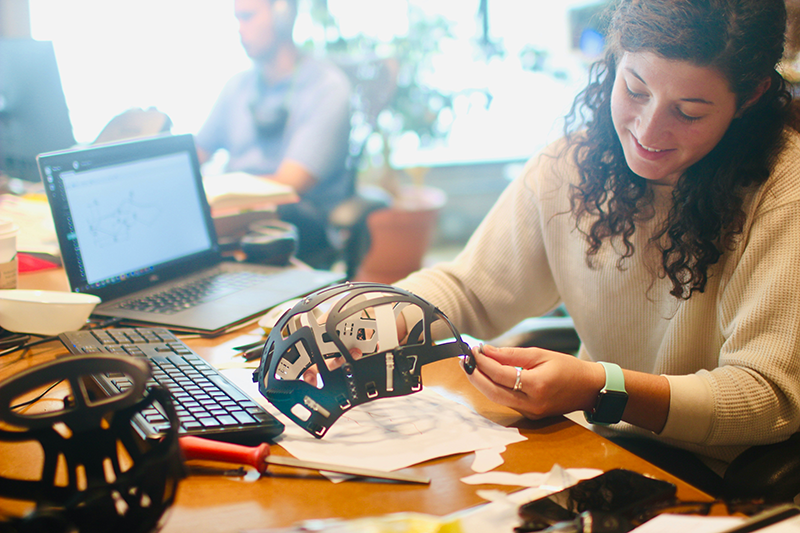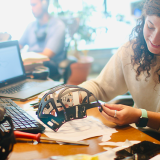
Condițiile de muncă și munca durabilă
Condițiile de muncă și munca durabilă reprezintă una din cele șase activități principale din programul de activitate al Eurofound pentru perioada 2021-2024. Eurofound va continua să funcționeze ca centru de expertiză pentru urmărirea și analiza evoluțiilor din acest domeniu, inclusiv a efectului crizei provocate de pandemia de COVID-19 asupra condițiilor de muncă și calității locurilor de muncă, precum și asupra activității profesionale.
În perioada 2021-2024, Eurofound va oferi informații importante cu privire la provocările și perspectivele legate de condițiile de muncă și de munca durabilă în UE. Pe baza competenței dobândite de mult timp în acest domeniu, Eurofound va analiza tendințele și progresele de-a lungul timpului și va identifica preocupările emergente legate de condițiile de muncă și de calitatea locurilor de muncă. Analiza va cuprinde diferite țări, sectoare, ocupații și categorii de lucrători pe teme ca organizarea muncii și telemunca, programul de lucru, echilibrul dintre viața profesională și viața personală, tratamentul egal, sănătatea și starea de bine la locul de muncă, competențe și formare, venituri și perspective și satisfacția muncii. Formele atipice de muncă vor constitui o temă specială, în special activitatea independentă.
Având în vedere dificultatea demografică pe care o reprezintă pentru UE îmbătrânirea populației și diversitatea din ce în ce mai mare a vieții profesionale, Eurofound va continua să examineze factorii care favorizează rămânerea lucrătorilor cât mai mult timp în câmpul muncii. Va aduce, de asemenea, în centrul atenției îmbunătățirea calității muncii ca factor favorizant pentru creșterea ratei de activitate și creșterea motivației angajaților, care contribuie la munca sustenabilă de-a lungul vieții.
Legăturile dintre muncă și sănătate vor fi analizate în strânsă consultare cu Agenția Europeană pentru Securitate și Sănătate în Muncă (EU-OSHA). Eurofound își propune să valorifice colaborarea sa cu Organizația Internațională a Muncii (OIM) cu privire la aspecte legate de viitorul muncii și al condițiilor de muncă la nivel mondial.
- Infografic: Condițiile de muncă și munca durabilă în UE
„Veștile sunt în general bune, deoarece condițiile de muncă din Uniunea Europeană se îmbunătățesc — deși foarte încet — dar problema este că acest lucru nu este neapărat valabil pentru toate categoriile de lucrători. Depinde foarte mult în ce sector lucrați, depinde de nivelul de studii și, sincer, depinde și dacă sunteți bărbat sau femeie.”
Barbara Gerstenberger, șefa unității „Viața profesională”

















